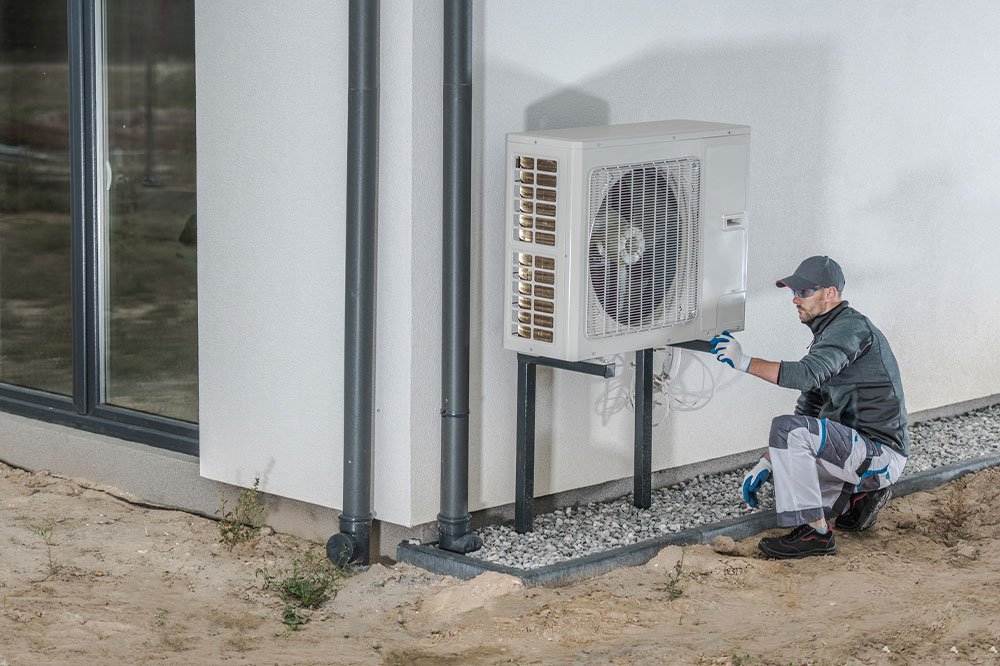
Benefits of heat pumps and what to consider when buying them
Heat pumps are home appliances that use electricity to transfer heat from outside into a room, keeping the space warm during winter. The same appliance can suck out heat from a room to keep you cool during summer. Heat pumps don’t generate heat but transfer it using refrigerant. As a result, they work efficiently and provide a comfortable temperature in any season. Read on to learn about the appliance’s benefits and how to buy them.
Top benefits of using heat pumps
Here are a few reasons why you should consider bringing home a heat pump:
- Heat pumps are energy-efficient
Heat pumps are becoming increasingly popular because of how well they work. They push warm air outside in the summer and ensure your home remains cool in the winter by transferring warm air inside, without consuming much energy.
- They work as both heater and cooler
The heat pump can keep the room both warm and cool depending on the season, so you don’t have to invest in two separate appliances. This means you save space and don’t need to worry about the hassle of having too many HVAC systems.
- Maintaining them doesn’t cost much
Since these appliances can work in any weather condition and use the same technology for heating and cooling, you will not have to spend much to maintain them. However, the cost of maintenance can shoot up if the pump is used improperly.
- Heat pumps aren’t noisy
These pumps are more silent than conventional HVAC systems, so they will not disturb you while you do your work. One reason behind its quiet operation is the system compressor, which is installed outdoors.
Factors to consider when buying a heat pump
Many companies sell heat pumps, which can make choosing difficult for beginners. With that in mind, we compiled a few factors that should influence your decision:
- Size
The size or capacity of the heat pump plays a significant role. If the heat pump is too small, it will have to work harder to regulate the indoor temperature. On the other hand, if it’s too large, your utility bills may shoot up. You can consult a professional heat pump service provider to determine the right size for your home.
- Efficiency
Never forget to inspect the efficiency ratings of the appliance. SEER (Seasonal Energy Efficiency Rating) and HSPF (Heating Seasonal Performance Factor) are two rating systems to look for. The higher these ratings, the more energy-efficient your system will be.
- Budget
Set a budget before heading to the store to buy a heat pump. The price can vary depending on the size, brand, ratings, and other factors. However, the average installation price is around $5,500. You may consult a professional to help you shortlist models within your budget.
- Type
Heat pumps may have different mechanisms of working. Based on their mechanism, they may be classified as air-source, geothermal, solar, hybrid, and ductless mini-split heat pumps. Air source heat pumps are the most popular because they offer reliable performance in any season. Many homeowners also choose them because of their affordability.
- Brand
Brands matter when it comes to heat pumps. The top brands promise efficiency and better service throughout the product’s life cycle. Amana, American Standard, Bosch, Carrier, Coleman, and Lennox are some companies to consider.
- Maintenance and servicing
Every machine requires efficient and adequate maintenance, and heat pumps are no exception. So, ensure your chosen system can offer flawless service without requiring frequent tune-ups. Also, inquire about the cost of repair and replacement in case the need arises.
- Duct system
Unless you buy a ductless mini-split heat pump, you need duct systems to install a heat pump at home. So, ensure your house can accommodate the necessary ductwork.
Heat pumps have become a part of most homes because of their vast benefits. They save money and electricity and provide uninterrupted comfort in any season. Contact a service provider to get one for your home today!



